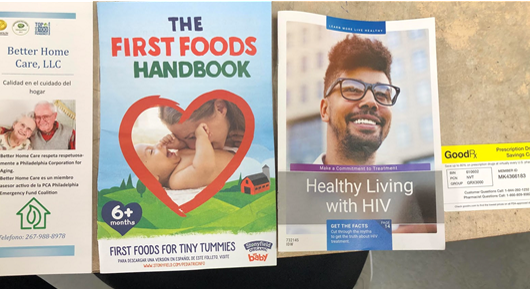Before Pre Service Orientation (PSO) began I had no idea what to expect. With 23 NHC members serving at different sites filling different roles, I wondered what kind of preparation we would receive before beginning service at our host sites. They way we were prepared is the way public health professionals view healthcare. We heard from a variety of speakers who spoke on topics such as nutrition, food insecurity, trauma, opioid use disorder (OUD), public health policy, intersectionality, and others. This wide array of topics shows the true scope of public health and gave me an excellent framing for how to approach this new and challenging year.
 Serving as a Patient Advocate for the Philadelphia Department of Public Health, my primary task is to assist uninsured or underinsured patients with obtaining free or reduced cost medication. These patients often have a number of obstacles to overcome, not unlike the ones we learned about during PSO. Having this lens to view health care through allows for a more collaborative and holistic approach than simply giving someone medication and sending them on their way.
Serving as a Patient Advocate for the Philadelphia Department of Public Health, my primary task is to assist uninsured or underinsured patients with obtaining free or reduced cost medication. These patients often have a number of obstacles to overcome, not unlike the ones we learned about during PSO. Having this lens to view health care through allows for a more collaborative and holistic approach than simply giving someone medication and sending them on their way.
This holistic approach is also seen in my experience with the medication assisted treatment (MAT) program for individuals suffering with OUD. Bimonthly meetings are held with providers and other health care professionals to discuss the progress of patients’ treatment and to collaborate on challenges they may face. During these meetings, the patients are discussed in terms of overall health. While patients may only have started coming to work on their OUD, providers and healthcare professionals work to ensure that all their health needs are met.This type of care is aided by the fact that a variety of healthcare professionals are at this one site and can collaborate frequently. Additionally, being able to come to one place and receive treatment on a wide array of health areas allow for greater access to care. This approach shifts the goal of healthcare from “fixing” a problem to helping a person achieve a healthy and happy lifestyle.
PSO helped to reinforce the idea that health care is complicated and, most importantly patient centered. Looking at patients through this lens allows for healthcare professionals to provide better and more compassionate care. This type of hands on learning will serve me well not only this year but into my future.
[image description of thumbnail: An exterior shot of Health Center Six in Philadelphia, Pennsylvania.]
[image description of body photo: A row of health brochures on topics that include elderly care, infant nutrition, HIV management, and prescription drug discounts.]
